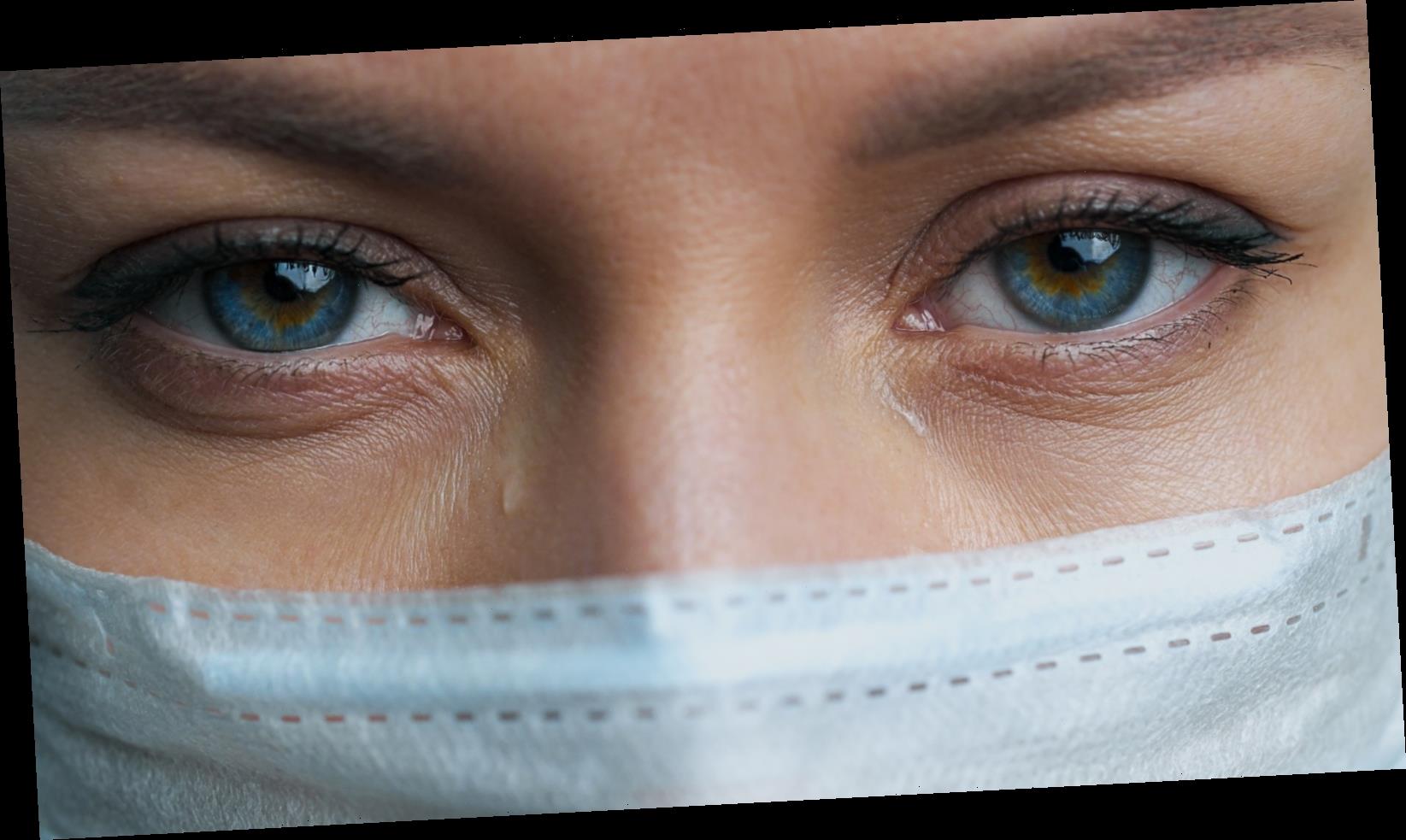
If you wear contact lenses or have had laser surgery to correct your vision, you’re likely no stranger to dry-eye syndrome. You feel as if your eyes are stinging, and they’re red, irritated, and teary (via American Academy of Opthalmology). And now, there’s a new reason you get dry-eye syndrome that’s tied to the pandemic — and it all has to do with wearing a face mask.
Eye doctors say they’re seeing an increase in what they’re calling MADE or mask-associated dry eye, which happens when exhaled air exits your mask by moving upwards, forcing air to move over the surface of your eyes (via The Conversation). That air causes your tears to evaporate, the same way sweat evaporates from the surface of your skin. When you wear a mask for long periods of time, this evaporation could lead to dry spots on the surface of your eye. People who are especially susceptible to MADE include contact lens wearers and people who stare at electronic screens for extended periods of time — which sounds like all of us who work from home and have to attend what now feels like a million Zoom meetings a day.
How to ease dry eye from wearing a face mask

Eye doctors say MADE, like maskne or fogged-up glasses, are not reasons to skip a mask. “The real reason for bringing this to people’s attention is to say, ‘Hey, if you notice this, this is why it’s happening and let’s help you manage your dry eye while you continue to wear your mask,” Lyndon Jones, the director of the Center for Ocular Research and Education at Canada’s University of Waterloo tells The Washington Post.
To keep MADE at bay, doctors suggest you find a face mask that fits properly, so that air has less of a chance of escaping from the top. Also, step away from the computer every 20 minutes to give your eyes a break. And speak to an eye specialist when you feel an early onset of MADE, which includes discomfort and blurred vision.
Much as we hate all the associated problems that come with wearing face masks, there is a compelling reason you need to keep them on. The CDC says clinical studies have shown that face masks are an important ally in the pandemic, because they catch potentially infectious droplets before they spread through coughing, sneezing, talking, or raising your voice. This means masks, along with social distancing, are still the best way to keep the virus from spreading.
Source: Read Full Article
